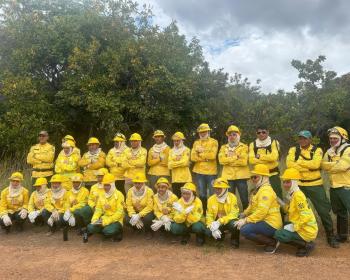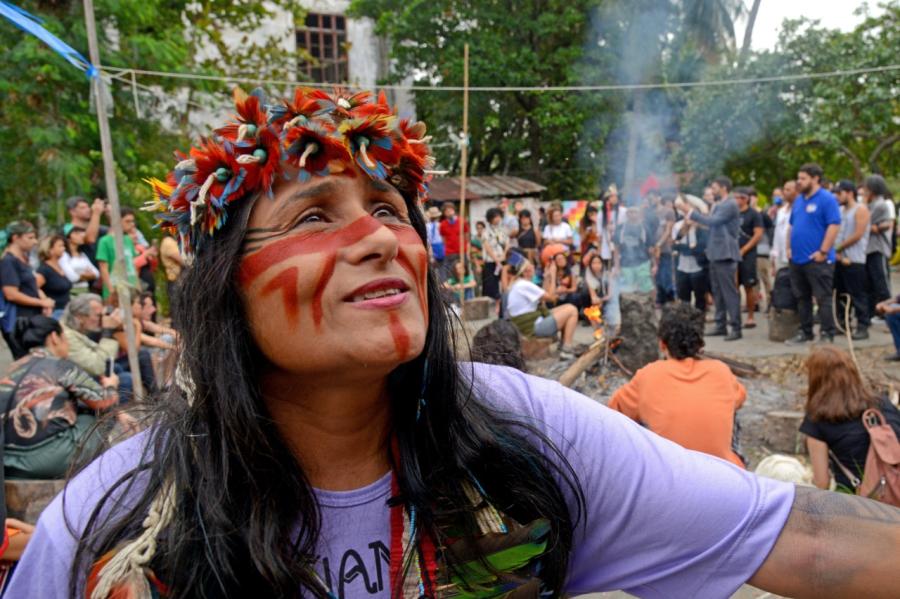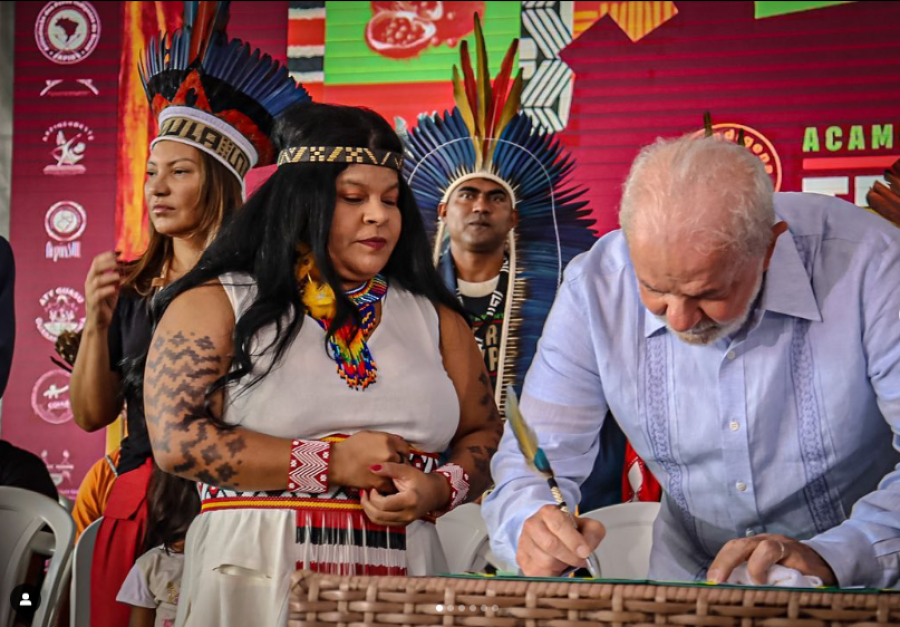Nineteen eighty-nine has been a crucial year in the struggle of indigenous people for their rights. A brief recap of some of this year's important events reveals a future that is both dismal and encouraging.
Unfortunately, Iraq's disgraceful treatment of its Kurdish minority continues unabated - and largely unnoticed by the world. That country's successful and unsanctioned use of chemical warfare against the Kurds in 1988 could set a dangerous precedent: chemical weapons could indeed become poor nations' equivalents to nuclear bombs, and the most likely targets could be "troublesome" indigenous peoples and ethnic minorities. Iraq's forced relocation this year of an estimated 150,000 Kurds - conducted without so much as a ripple in the world press - is another indication of the world's indifference. The awful truth is that few states are interested in investigating human rights violations within other states - much less in condemning them or devising suitable strategies to counter them.
Fortunately, all the news is not bad. On a more positive note, a handful of Brazilian Indians has been traveling the world over in an effort to raise consciousness about the global importance of Brazil's rain forests and their inhabitants. These indigenous spokespeople have been demonstrating to the world that much of what is being cut down in the rain forests cannot be replanted.
The speakers - Ailton Krenak, the head of the Union of Indian Nations in Brazil, Yanomami representative Davi Yanomami, and Kayapó leaders Raoni and Paiakan - have represented the interests of Brazil's Indians not only in Brazil but also in North America, Europe, Japan, and even India. As a result of these efforts, there has been more international press coverage about the problems facing Brazilian Indians in the past year than in any other. The publicity has not only brought considerable media attention, but much-needed funding for projects as well.
Still, even in the case of Brazil, there are problems. Estimates indicate that the number of gold miners in the Yanomami area could be as high as 80,000 to 100,000. When there were only 25,000 miners in the area, in early 1988, government estimates indicated that as many as three Yanomami were dying every day. Because the area is off limits, no one really knows where the situation stands today.
The international wave of interest in Brazil's rain forests has allowed some Indian leaders to present their case to the world and to improve their situation somewhat. Other indigenous groups, however, have not been as fortunate. Most indigenous peoples do not live in the rain forests, nor do they wear the colorful paint and feathers that would give them quicker entré to the media. El Salvador's half a million Indians, for example, live in squalor. Few have enough land to meet even their subsistence needs, many are unemployed, and their children are malnourished and sick. To the outside world. El Salvador's Indians might look like peasants - but they are not. They have a distinct culture - one that, unfortunately, gives their oppressors license to discriminate against them.
These groups - the ones that have been dominated and oppressed by states for generations, even centuries, until they have become invisible to outsiders - need the most help. Yet these groups are also the hardest to assist. They do not fit the Western mold of what an indigenous group should be, nor do they fall into the latest funding fad in the foundation cycle.
During the next nine months. Cultural Survival will be putting together a three-year global strategy for the protection of indigenous peoples. We will be discussing this with indigenous peoples, non-governmental organizations, and individuals around the world. We also would appreciate any comments, thoughts, or ideas from our readers. Such a strategy will of necessity include many different organizations and individuals working on different aspects of the problem. If we work together, or at least if we are all informed of each other's activities, the work will be more effective. We have no time to lose if we do not want to lose the human race.
Article copyright Cultural Survival, Inc.



